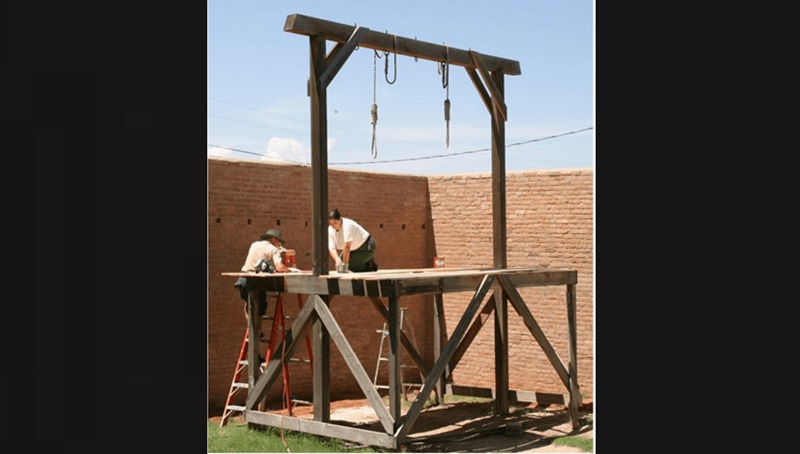

I recently wrote about a cop I know who was fired for something he didn’t do, due to out-of-context reporting and by disregarding the officer’s intent, which brought two controversial issues to mind. The realities of police empathy and gallows humor.
While some people believe every cop should treat every person as they would their own families every time, that’s not only unachievable but also unrealistic.
Maintaining a degree of emotional separation from the people cops serve is essential. That doesn’t mean that officers shouldn’t care about people. It means maintaining a degree of professional distance can increase the odds of better outcomes.
That officer was fired, in part, because some people believed the officer didn’t show the proper sympathy or empathy for a victim—he didn’t know and never saw. These tragedies are where cops’ coping mechanisms activate. One of those mechanisms is “gallows (or dark) humor,” which is common among people in occupations that deal with life and death like doctors, nurses, the military, firefighting, and law enforcement.
Officers cannot emotionally absorb every tragedy as if all victims were members of their families. So, they must distance themselves emotionally—which is hard for many civilians to understand especially when they sometimes use humor. Their intent is not to hurt or disparage the victims, their families, or the community. Humor is a coping mechanism and stress reliever shared among those involved with handling a tragedy professionally.
Sometimes, laughing or smiling is only tangently related to gallows humor but is more of an act of emotional detachment. Every cop has seen it where an officer at a tragic scene laughs or smiles (normally not even about that incident) or catches themselves doing it. Does it look bad? Sure. Should cops do it? Probably not. But a one-time occurrence is not worth firing someone over. Thought, repeatedly doing it may require reasonable discipline to correct.
People forget two things: First, cops are human beings, thus flawed, and they will make mistakes. Second, cops see tragedy routinely and may naturally use psychological tools like humor to cope. Humor does not show a lack of empathy but is an expression of it. The officer is essentially demonstrating that this incident is affecting them to the point their psychological defense mechanisms are activating to help them process it.
Are cops not allowed to have coping skills? Society wants their cops to wade into danger, trauma, and tragedy repeatedly but not to cope through effective means that may make some people feel uncomfortable. Extremist cop-haters are teaching people cops must always be the police critic’s version of perfect in all incidents.
Even if treating everyone as a family member were possible, can you imagine what it would do to a person psychologically not only to treat everyone that way but also to absorb multiple tragedies without the benefit of traditional coping skills—in some cases, private gallows humor?
It’s not only cops. With regard to physicians’ use of gallows humor, according to a recent Substack article by Lillian White M.D., “For those not familiar with the term, gallows humor is defined by Webster as ‘humor that makes fun of a life-threatening, disastrous or terrifying situation.’ Intense circumstances may result in intense or aggressive humor. And, if overheard by the patient, it would likely be hurtful or quite insulting.”
As bad as gallows humor can be if overheard, imagine if a patient, victim, or the family not only inadvertently overhears the sardonic humor but it’s intentionally made worse? What if the victim’s family didn’t hear the comments but extremists intentionally informed the victim or family (and the public) about the out of context comments, as if they were in context, that they were never meant to hear. Now, that is truly cruel.
A quick caveat: There is an exception with child victims. Most officers naturally empathize with children and don’t employ gallows humor even in private when it comes to kids. There’s just no coping when bad things happens to children—you just have to learn to live with it. Kids are different. And, fortunately, child victims are rare compared with adults.
Most people that cops deal with are adults. Cops will provide them with the very best service possible, but that cannot include treating everyone as if they were a family member. Think about this. The last time you dealt with a medical emergency involving a family member due to an accident or criminal’s actions, how much would you have felt like doing your job, whatever it is, afterward? Cops normally go right back to work, making coping mechanisms necessary.
The celebrated Sigmund Freud lauded “dark humor” as a way for people who routinely deal with trauma and death to deal with it.
This is not to say every officer will or should use gallows humor during every traumatic event. Like anything, some people will use this coping mechanism during some incidents. But not every cop or every incident. It’s just important to know that dark humor exists, and some cops use it—sometimes.
According to an article by Zoe R. Potter, at Portland State University, Freud posited that people using humor to deal with traumatic situations benefit not only psychologically but physically.
“Freud helped popularize the Relief Theory of humor, which views humor as a means of personal relief from energy trapped within the nervous system (Atkinson, 2006) … Today, this theory is understood as relief from nervous tension or stress through the physiological act of laughing” (Morreall, 2020).
I recall, when I was just a tad younger, I got a dose of what gallows humor in police work looked like. On the popular 1980s TV cop show Hill Street Blues, if I remember right, officers were at a serious car collision scene. One officer locates a severed arm in the gutter. He lifts the limb toward his partner, revealing a watch on its wrist, and says something like, “What do you know? Takes a licking and keeps on ticking,” parodying the Timex Watch commercial tagline at the time. That is gallows humor.
When cops remain emotionally detached from the victim, they are laughing at the situation, not at the victim, because the victim is an abstraction—especially if the joking officer wasn’t even at the scene. Cops normally don’t know the victims and while they harbor no ill will toward them, knowing they would never say such things in their presence, the families, or any other non-emergency services person, the humor can serve as a indispensable stress relief valve.
Make a difference. Support the NPA.